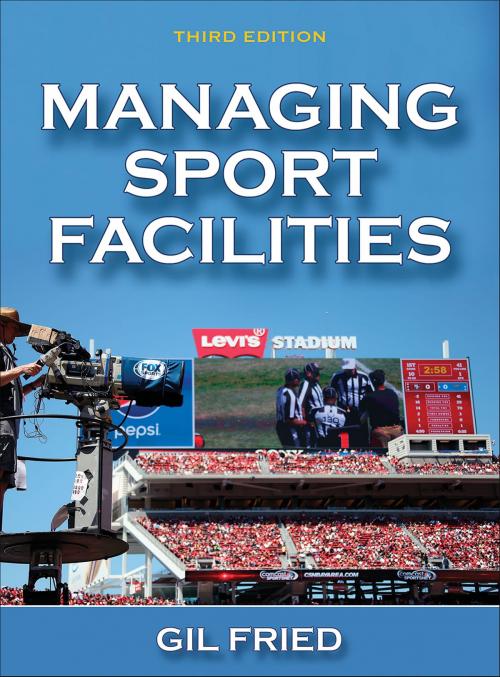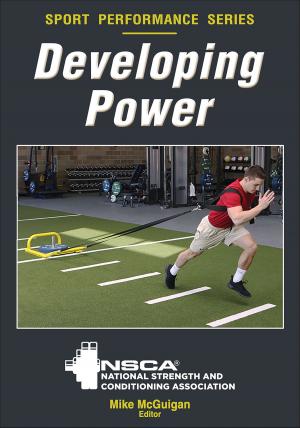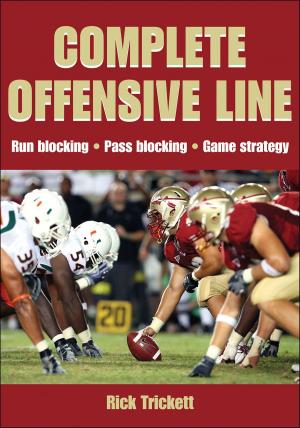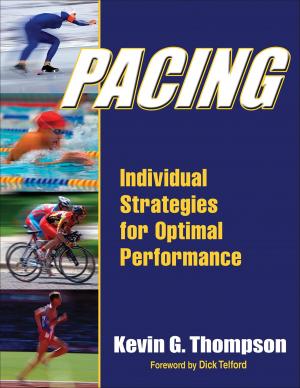Managing Sport Facilities
Nonfiction, Sports, Reference, Business & Finance, Industries & Professions, Industries| Author: | Gil B. Fried | ISBN: | 9781492585107 |
| Publisher: | Human Kinetics, Inc. | Publication: | May 11, 2015 |
| Imprint: | Human Kinetics, Inc. | Language: | English |
| Author: | Gil B. Fried |
| ISBN: | 9781492585107 |
| Publisher: | Human Kinetics, Inc. |
| Publication: | May 11, 2015 |
| Imprint: | Human Kinetics, Inc. |
| Language: | English |
Managing Sport Facilities, Third Edition, continues the tradition set by its predecessors of providing future and current sport facility managers with the knowledge they need in order to make the proper decisions in all areas of facility management. Like the previous two versions, the third edition provides a comprehensive understanding of crafting a career in running a sport facility.
The third edition of Managing Sport Facilities engages students with a clear writing style, extensive real-world examples, and information on managing a range of facilities, from smaller health clubs, colleges, and recreational environments to professional sport stadiums. Because managers require current information to meet the needs of new facilities and audiences, this edition has been updated to include the following:
• A new chapter on green facility management
• Updated Sport Facility Management Profiles featuring industry experts introducing applied connections for each chapter
• Expanded Facility Focus sidebars presenting facts and strategies used by real facilities
• An updated instructor ancillary package, now including instructor videos that feature professionals in the field offering advice and insight
In response to its increasing importance over the last decade, the newest chapter in this text focuses on implementing and maintaining green facilities. This chapter details items that should be considered during the construction of new environmentally conscious facilities as well as information on retrofitting and updating older facilities with green technology, such as recycling initiatives and solar panels. A facility built according to Leadership in Energy and Environmental Design (LEED) standards may lose its certification if not properly maintained over time, so tips for preserving green facilities are also included.
In Managing Sport Facilities, Third Edition, students will learn the history of the sport facility industry and the primary goals and objectives of facility managers; how to build and finance a facility; facility operation; administration of marketing, finance, and other critical areas; and event administration and management. A comprehensive approach to understanding the wide-ranging job of sport facility managers has been applied, with a structure that builds from general to specific, and finally to practical knowledge in the final chapter. In addition, the text offers updated content in the Sport Facility Management Profiles, Facilities Trivia, Behind the Scenes, and Facility Focus sidebars in each chapter, which bring the theories and concepts to life by citing specific examples of strategies used in making a facility—and the facility manager—more successful. New instructor videos that can be shared during class provide students with a glimpse into the lives of real-world professionals as they provide insight and advice.
Managing Sport Facilities, Third Edition, contains extensive textbook learning aids, including real-world checklists and forms that allow students a glimpse of some of the tools and guidelines that professionals use in their work. Each chapter begins with objectives and an overview and concludes with a summary and discussion questions and activities. The instructor ancillaries will help instructors prepare for and teach classes, and the text itself has an engaging style that makes the reading cogent and easy to remember.
Starting from its already-solid foundation, the new material, updates, ancillaries, and practical learning aids make this third edition the most complete and up-to-date text on the subject. Students using this text will learn what it takes to blend leadership, operations management, and creativity in promotions as they begin their journey to being top-notch sport facility managers.
Managing Sport Facilities, Third Edition, continues the tradition set by its predecessors of providing future and current sport facility managers with the knowledge they need in order to make the proper decisions in all areas of facility management. Like the previous two versions, the third edition provides a comprehensive understanding of crafting a career in running a sport facility.
The third edition of Managing Sport Facilities engages students with a clear writing style, extensive real-world examples, and information on managing a range of facilities, from smaller health clubs, colleges, and recreational environments to professional sport stadiums. Because managers require current information to meet the needs of new facilities and audiences, this edition has been updated to include the following:
• A new chapter on green facility management
• Updated Sport Facility Management Profiles featuring industry experts introducing applied connections for each chapter
• Expanded Facility Focus sidebars presenting facts and strategies used by real facilities
• An updated instructor ancillary package, now including instructor videos that feature professionals in the field offering advice and insight
In response to its increasing importance over the last decade, the newest chapter in this text focuses on implementing and maintaining green facilities. This chapter details items that should be considered during the construction of new environmentally conscious facilities as well as information on retrofitting and updating older facilities with green technology, such as recycling initiatives and solar panels. A facility built according to Leadership in Energy and Environmental Design (LEED) standards may lose its certification if not properly maintained over time, so tips for preserving green facilities are also included.
In Managing Sport Facilities, Third Edition, students will learn the history of the sport facility industry and the primary goals and objectives of facility managers; how to build and finance a facility; facility operation; administration of marketing, finance, and other critical areas; and event administration and management. A comprehensive approach to understanding the wide-ranging job of sport facility managers has been applied, with a structure that builds from general to specific, and finally to practical knowledge in the final chapter. In addition, the text offers updated content in the Sport Facility Management Profiles, Facilities Trivia, Behind the Scenes, and Facility Focus sidebars in each chapter, which bring the theories and concepts to life by citing specific examples of strategies used in making a facility—and the facility manager—more successful. New instructor videos that can be shared during class provide students with a glimpse into the lives of real-world professionals as they provide insight and advice.
Managing Sport Facilities, Third Edition, contains extensive textbook learning aids, including real-world checklists and forms that allow students a glimpse of some of the tools and guidelines that professionals use in their work. Each chapter begins with objectives and an overview and concludes with a summary and discussion questions and activities. The instructor ancillaries will help instructors prepare for and teach classes, and the text itself has an engaging style that makes the reading cogent and easy to remember.
Starting from its already-solid foundation, the new material, updates, ancillaries, and practical learning aids make this third edition the most complete and up-to-date text on the subject. Students using this text will learn what it takes to blend leadership, operations management, and creativity in promotions as they begin their journey to being top-notch sport facility managers.















